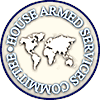


| For Immediate Release: March 17, 2004 |
Contact: |
Harald Stavenas |
OPENING
REMARKS OF CHAIRMAN DUNCAN HUNTER
Hearing on Combating the Proliferation of Weapons of Mass Destruction
This morning the committee meets to examine what steps that the United States should take to combat the spread of weapons of mass destruction.
Since September 11, the Administration has identified the nexus of terrorism and weapons of mass destruction as they key threat facing this country in the 21st century. That threat arises from the intersection of two trends. First, terrorists are increasingly ambitious in their tactics, seeking ever-higher number of casualties to dramatize their cause. Second, technology and globalization are making it easier for weak states and terrorist groups to acquire the means of inflicting mass casualties.
Therefore, the question before us is: what should we do as a nation to prevent these two trends from resulting in a horrendous attack on innocent men, women, and children?
For a long time, this committee has focused its efforts on the Cooperative Threat Reduction and Nuclear Nonproliferation programs of the Departments of Defense and Energy. While those programs have a role to play, the country needs an approach that employs every tool at its disposal.
The administration has developed just such a comprehensive strategy. Announced in December, 2002, it has three pillars:
. counterproliferation to deter and defense against the use of weapons of mass destruction;
. strengthening nonproliferation regimes to prevent their spread; and
. consequence management to respond to their use.
Almost immediately, the administration began fleshing out that strategy. It initiated multi-pronged diplomatic initiatives to constrain the North Korean and Iranian nuclear programs. It took action to eliminate a regime with a history of using chemical weapons. It brought initiatives before the United Nations calling on states to improve their domestic controls on exports of sensitive technologies; and, it sought to criminalize the international trafficking in weapons of mass destruction and their technologies. Finally, it launched the multilateral proliferation security initiative to increase international cooperation and interdict shipments of weapons of mass destruction and associated technologies.
Clearly, the increased attention to weapons of mass destruction got the attention of some traditional rogue states. This winter, Libya renounced its pursuit of weapons of mass destruction and began cooperating with American and British personnel to end its nuclear and chemical weapons capabilities. Facing American diplomatic and economic pressure, backed by a willingness to use military might against rogue dictators, Khadafi realized that his country would be safer, and more prosperous, if it gave up its WMD programs. With Libya's decision to begin the process of rejoining the civilized world, the Bush Administration's strategy is paying off, resulting in a safer planet, and a safer United States.
Success in Libya proves that our strategy must be comprehensive and combine diplomatic, political, economic, and military means to combat the spread of weapons of mass destruction. However, while the progress in Libya is an encouraging first step, we still face monumental challenges in applying every policy tool at our disposal if we are to succeed in denying this dangerous capability to our adversaries.
I look forward to hearing our witnesses' thoughts on where we are today in this effort as well as what further steps should be taken to achieve this goal.
###
2120 Rayburn House Office Building
Washington, D.C. 20515
|
NEWSLETTER
|
| Join the GlobalSecurity.org mailing list |
|
|
|

